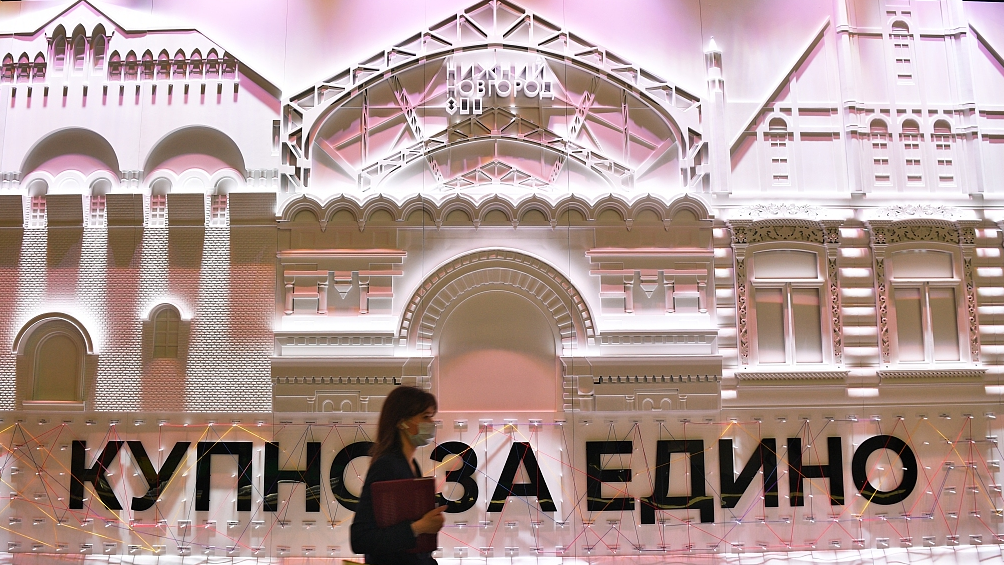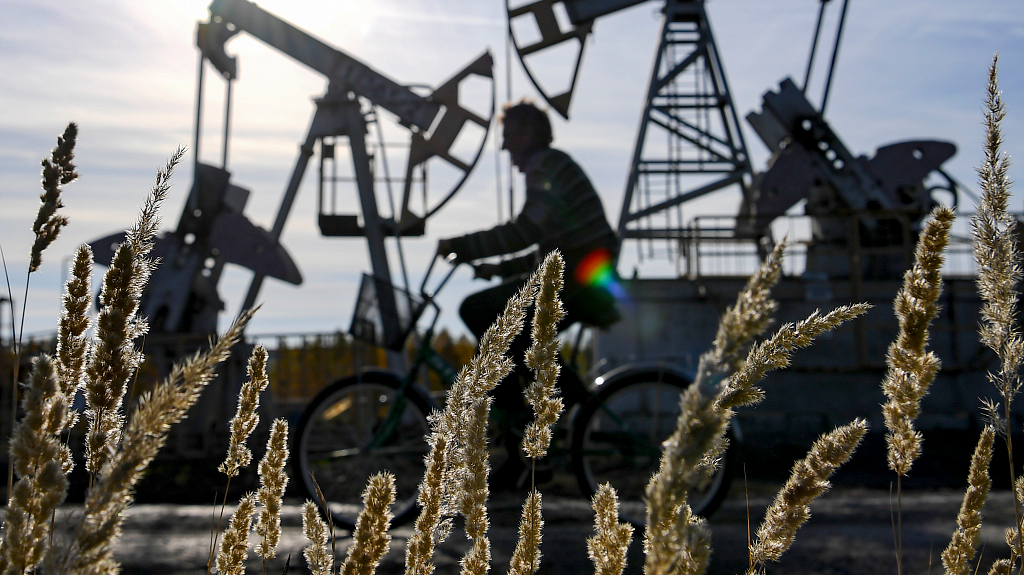
The 24th St. Petersburg International Economic Forum at the ExpoForum Convention and Exhibition Centre in St. Petersburg, Russia, June 5, 2021. /VCG
The 24th St. Petersburg International Economic Forum at the ExpoForum Convention and Exhibition Centre in St. Petersburg, Russia, June 5, 2021. /VCG
Editor's note: James Rae is a professor from California State University Sacramento. He was also a Fulbright Scholar at Beijing Foreign Studies University from 2017 to 2018. The article reflects the author's opinions, and not necessarily the views of CGTN.
The St. Petersburg International Economic Forum takes place from June 15 to 18. Hosted annually by Russia, the 25th gathering is expected to include representatives from over 140 countries and territories, including dozens of foreign ministers, and offers an opportunity to discuss global economic, social, and technological issues, particularly those affecting Russia.
Sometimes known as the "Russian Davos," it is a reminder of Russia's importance, particularly in geopolitics and energy, and has often featured a who's who of global political and business leaders. This year, Egypt is featured as the guest country and Egyptian President Abdel Fattah al-Sisi will take part in a SPIEF plenary meeting on June 17.
The SPIEF comes at a challenging time both for Russia and essentially all countries in the global economy. Inflation is spilling over shores, with food and energy prices spiking, and with no end in sight. Some countries, from Israel to Singapore, are slowly emerging from pandemic lockdowns to open their tourism sectors as well as their broader economies. Some other nations are taking slower measures to restart trade.
We are not out of the woods yet, though recently we see some hope that capacity can expand and global supply chains have recovered to near normal rates. Yet the unleashing of pent-up demand and over-stimulating policies in the United States are damaging the recovery as inflation has ramped up during the past year, driven by supply side limits, particularly in the energy sector. None of the world's largest economies are producing sustained growth yet, and uncertainties prevail both in policy preferences and in the market.
For a country like Russia, sanctions are a major hindrance to its economic viability in the short run, yet high energy prices are spurring significant revenue accrual. The SPIEF will explore the limits and opportunities for Russia's economic future in the near-term. One path included at the forum will be the BRICS confabulation, where countries like Brazil, India, China, and South Africa offer respite for Russian planners and diplomats to strategize investments and development strategies among the largest emerging economies.
Other panels will frame the existing challenges Russia faces, and work toward new ways in the existing environment, including ones for Russia's financial sector, internet and cyberspace, and other elements of the new economy. Some panels will address new challenges, like preserving national identity in the information age through mobilizing resources to build a strong country through patriotism and tradition.

An oil pumpjack in Almetyevsk District, Republic of Tatarstan, Russia, May 10, 2021. /VCG
An oil pumpjack in Almetyevsk District, Republic of Tatarstan, Russia, May 10, 2021. /VCG
We will also see Russia emphasizing bilateral and multilateral relations with mid-tier countries in the Middle east like Egypt, Iran, and Turkey, along with regional frameworks like the Eurasian Economic Union (EAEU), Association of Southeast Asian Nations (ASEAN) and the Shanghai Cooperation Organization (SCO).
Moscow also renewed emphasis on continents like Latin America and Africa, where diplomatic ties are stronger. Russia will also look to new and growing trade routes and export paths that allow it to maintain its energy dense production, particularly in the North Sea and Arctic Ocean. Finally, other panels will challenge Western norms and pressures.
This year's SPIEF could be a pivot point to a more national oriented development strategy from Russia and other countries following the Donald Trump era break from globalization. Alternatively, it could recenter international relations and political economy toward the Global South, where Russia finds more welcoming leadership and statist development projects that comport better with its own orientation.
Delegates from those countries may emphasize more equitable economic relations and find advantages and opportunities with BRICS countries sponsoring infrastructure and growth-oriented projects. Perhaps it will also serve as a return of Russia to the global stage and provide a tentative road to build back relations among great powers with an eye toward future forums that most of the world attended and the world economy was enjoying prosperity and harmony.
As with any such major international gathering, it will not do harm but provide a forum for dialogue and discussion. This year's meeting takes place amid great uncertainty in the global economy, and the current path we are on looks dismal and destructive. The SPIEF began at a time of the unleashing of globalization in the age of prosperity in the 1990s, and serves as not only a reminder but also a bridge to a hopeful future when countries cooperate toward the win-win benefit of economic integration.
(If you want to contribute and have specific expertise, please contact us at opinions@cgtn.com. Follow @thouse_opinions on Twitter to discover the latest commentaries in the CGTN Opinion Section.)

